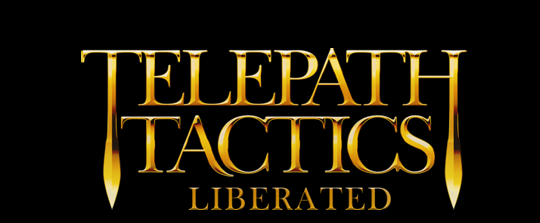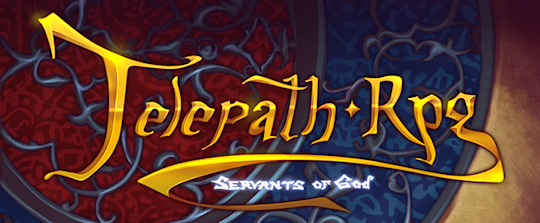John Walker of RockPaperShotgun wrote an editorial today that has worked the internet into one of its customary tizzies. As I sometimes do, I feel obliged to weigh in here.
I can understand why some people are upset. For one thing, the piece focuses on the tiny minority of artists who are “multi-millionaire[s]” while seeming to gloss over the interests of creatives who are compensated more modestly. Also: the piece implies that copyright law protects ideas, which it most certainly does not! But I don’t think that’s why most people not named “Craig Stern” might be irritated with this article, so let’s ignore that second problem here.
Anyway! Despite its flaws, I’m actually not writing to criticize Walker’s editorial so much as to defend it. Frankly, I don’t think his op-ed really deserves the vitriolic response it has received from many developers. Though it may be imperfectly supported, John’s central point is actually pretty reasonable. To wit: (1) it serves the public for creative works to eventually enter the public domain, and (2) copyright law as it stands right now does not give that interest its proper due.
 See, here’s the thing about copyright law: it’s all about public policy. And like all laws concerned with public policy, copyright statutes have to balance competing interests to achieve a desired outcome. Entry into the public domain is one of those interests. Making it so works enter the public domain relatively quickly serves the public interest by making creative works freely available, both for consumption by consumers and for transformation by other creatives. That is absolutely, undeniably true, and John Walker is right to champion that interest.
See, here’s the thing about copyright law: it’s all about public policy. And like all laws concerned with public policy, copyright statutes have to balance competing interests to achieve a desired outcome. Entry into the public domain is one of those interests. Making it so works enter the public domain relatively quickly serves the public interest by making creative works freely available, both for consumption by consumers and for transformation by other creatives. That is absolutely, undeniably true, and John Walker is right to champion that interest.
However, there is an equally important interest at stake in keeping copyright protections in place for an extended period. The authors of the Statute of Anne–the world’s very first copyright law–spelled that interest out back in 1710 as part of their justification for the law. They wrote:
Whereas printers, booksellers, and other persons have of late frequently taken the liberty of printing, reprinting, and publishing, or causing to be printed, reprinted, and published, books and other writings, without the consent of the authors or proprietors of such books and writings, to their very great detriment, and too often to the ruin of them and their families: for preventing therefore such practices for the future, and for the encouragement of learned men to compose and write useful books…
So there we have it, spelled out right in the world’s first copyright statute: copyright protections exist so that individuals can create valuable works professionally without fear of financial ruin. By protecting professional creatives, copyright serves to encourage “learned men to compose and write useful books”–and now, in the 2000s, to create works in other artistic media as well. Like, y’know, video games.
The thing is, Walker clearly recognizes this interest too! He spells it out right in his article. To wit: “For someone to make their living from creative pursuits relies on some sort of financial return, yes.” He is not advocating for the abolishment of all copyright law here. He’s just saying that the pendulum of copyright law has swung too far in the direction of protecting creators, and does not currently do enough to safeguard the interests of the public in having creative works enter the public domain. Walker may couch it in inflammatory language, but his central conceit is hard to argue with, particularly insofar as it’s aimed at U.S. copyright law.
Under U.S. law, copyright protections last for as long as the creator lives, and then for another 70 years on top of that! As a developer and writer who benefits from copyright law, I must confess to some puzzlement as to what benefit I could possibly receive from having paychecks delivered to my casket 70 years after my passing. When Walker asks us to think about how long it is really reasonable for a copyright to last, he does so in the context of a copyright regime that is clearly designed for the benefit of immortal corporations rather than for the human slaves who sustain them with their hard-fought works of creative authorship.
Now, to be clear: I don’t think Walker’s proposed 20 years is a sufficient length of time for a copyright to last. It might seem reasonable at first, since 20 years is how long patents last, and 20 is very close to the 21 years that the Statute of Anne first prescribed in 1710. However, creative works tend to have a longer cultural shelf life than most useful technologies by dint of being concerned about artistic choices rather than pure efficiency and utility–you can’t just replace a game with another, more efficient game the way you can a toaster.
Further, life expectancies in 1710 were hardly what they are now. Galor and Moav calculate an average life expectancy of approximately 36 years for Britain in 1710, which works out to copyright covering a little over 58.3% of a person’s lifespan in that time and place. By contrast, the average American life expectancy today is 78.64 years. If we stick to that 58.3% formula, we arrive at a proportional copyright length of nearly 46 years–certainly a good deal longer than what Walker suggests.
In fact, despite what his article says, I think you can go even further and make a pretty convincing argument for making copyright last for as long as the creator lives. Surviving as an independent artist is hard enough without having one’s isolated commercial successes reverting to the public domain just as one is finally starting to eke out a comfortable living. The games market is nothing if not unpredictable, bordering on Hobbesian. Allowing game developers to build up a back catalog–and thus, a long tail–over the course of their careers is rather important for providing a measure of financial security to those of us who create niche works and have to make do without large marketing budgets (let alone mansions and chandeliers). Sure, it will take work to ensure that those games actually remain playable decades into the future, but that’s a technical challenge for developers, not a reason to strip them of the financial incentive to try.
The appropriate length of copyrights is one area where I suspect John Walker and I are simply going to disagree. But that’s fine! It is in the nature of policy debates to have different perspectives about where the draw the line, and how heavily to favor certain interests in drawing it. U.S. copyright law favors corporate IP owners so heavily that the public interest in public domain works is practically not represented at all. Though we may disagree with some of the particulars, I think Walker deserves some credit for bringing that fact to the public’s attention.
Craig Stern is an indie developer currently working on the turn-based tactics game Telepath Tactics. He is the founder of IndieRPGs.com, and can often be found rambling in short, 140-character bursts on Twitter.







